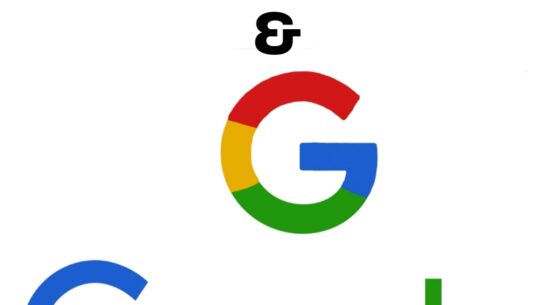Defamation Lawsuit | Digital Media Law | Society
A Defamation Battle Emerges in Seymour, Indiana
A local Facebook page targeting immigration issues has ignited a legal firestorm in Jackson County, Indiana. On September 4, Seymour attorney Brett Hays filed a defamation lawsuit alleging that the anonymous operator of the page “Immigration Seymour” posted “numerous false and disparaging statements” about him, including the inflammatory claim that Hays “is making a killing on representing illegal immigrant crimes.”
The lawsuit, filed in Jackson Superior Court 1, has since been assigned to Jackson Circuit Judge Richard W. Poynter, appointed as special judge to ensure impartiality in what could become a high-profile test of Facebook-era libel law.
According to court filings, Hays claims the posts were designed to damage his professional reputation, reduce community trust, and stir hostility against him in a politically charged environment. The case now sits at the intersection of First Amendment protections, online anonymity, and the increasingly blurred lines between opinion and defamation on social media.
Judge Poynter Steps In
Judge Richard Poynter, a seasoned jurist and former prosecutor, has built a reputation for methodical and fair handling of both criminal and civil matters. His appointment as special judge suggests heightened scrutiny for a case involving both speech rights and the reputational stakes of a practicing lawyer in a small community.
While the court has not yet ruled on any dispositive motions, legal observers are already watching closely to see whether Poynter will allow the case to proceed past early challenges—particularly if the defense invokes First Amendment protections or seeks dismissal on grounds that the statements are non-actionable opinion or rhetorical hyperbole.
Defamation in the Age of Facebook: A Growing Legal Front
This case is not unique. In fact, it’s part of a much broader wave of libel litigation driven by social media platforms—especially Facebook, which remains the most widely used social network in the United States.
The Numbers:
- Over 68% of U.S. adults use Facebook, many daily, according to Pew Research (2024).
- Legal analytics firm Lex Machina reported that online defamation suits have increased by more than 250% since 2018, with Facebook mentioned in nearly half of all recent digital libel cases.
- A 2023 ABA Journal report noted that plaintiffs in smaller communities are especially vulnerable, as reputational harm spreads quickly and can be difficult to undo once misinformation is shared online.
In this legal environment, Facebook functions like a modern-day public square—but without the editorial gatekeeping of traditional media. The relative ease of publishing—and the ability to do so anonymously—makes platforms fertile ground for defamatory content, whether intentional or reckless.
Key Legal Questions in Hays v. Immigration Seymour
Several core legal doctrines are likely to come into play:
1. Defamatory Statement vs. Protected Opinion
To be defamatory, a statement must be both false and purported as fact. Hyperbolic or opinion-based language, particularly on issues of public concern, is often shielded by the First Amendment.
- Was the phrase “making a killing” simply expressive slang?
- Was the statement implying unethical conduct, criminality, or profiting from criminal representation?
- Could a reasonable reader interpret the post as an assertion of fact rather than opinion?
2. Public Figure or Private Plaintiff?
If the court finds Hays to be a limited-purpose public figure, he would be required to prove “actual malice”—that the statements were made with knowledge of their falsity or reckless disregard for the truth.
That’s a high burden, often fatal to libel plaintiffs unless solid evidence emerges during discovery.
3. Anonymous Speech and Identification
A key procedural hurdle will be unmasking the operator of the “Immigration Seymour” Facebook page. Courts typically apply a balancing test: does the plaintiff’s right to seek redress outweigh the anonymous speaker’s First Amendment right to remain unidentified?
Discovery motions to subpoena Facebook (now Meta Platforms) for IP logs or account data may follow, raising both privacy and jurisdictional issues.
Free Speech or Defamation? The Legal Tightrope
At the core of this lawsuit is a fundamental constitutional question: when does political or social commentary cross the line into actionable defamation?
While courts are historically deferential to political speech—particularly when criticizing lawyers, public servants, or figures tied to controversial issues like immigration—there are limits. False factual statements that damage someone’s career, safety, or reputation may give rise to liability, especially when amplified on platforms like Facebook where falsehoods can circulate widely with minimal accountability.
This case may also serve as a warning to social media users who believe anonymity provides immunity from legal risk. Courts increasingly permit plaintiffs to uncover anonymous posters when they can make a prima facie case of defamation.
What This Case Could Mean Going Forward
If the case proceeds past early motions, it may:
- Set precedent in Indiana trial courts regarding how local judges interpret Facebook defamation and anonymous speech;
- Serve as a cautionary tale for politically motivated Facebook pages operating near the edge of legality;
- Encourage attorneys and professionals to more aggressively protect reputations online;
- Highlight the growing pressure on platforms like Meta to police speech while protecting anonymity and lawful expression.
More broadly, Hays v. Immigration Seymour underscores the fragile balance between free speech and reputational rights in a time when accusations, even unfounded ones, can go viral before facts catch up.
Conclusion: A Small-Town Case with National Echoes
What may seem like a local dispute in Seymour, Indiana, is emblematic of a much larger legal and cultural trend: the collision of free speech, digital platforms, and professional reputation in a hyper-connected world.
As Judge Richard Poynter takes the bench in this defamation case, attorneys, social media operators, and free speech advocates alike will be watching for how Indiana’s courts grapple with the modern shape of libel.






